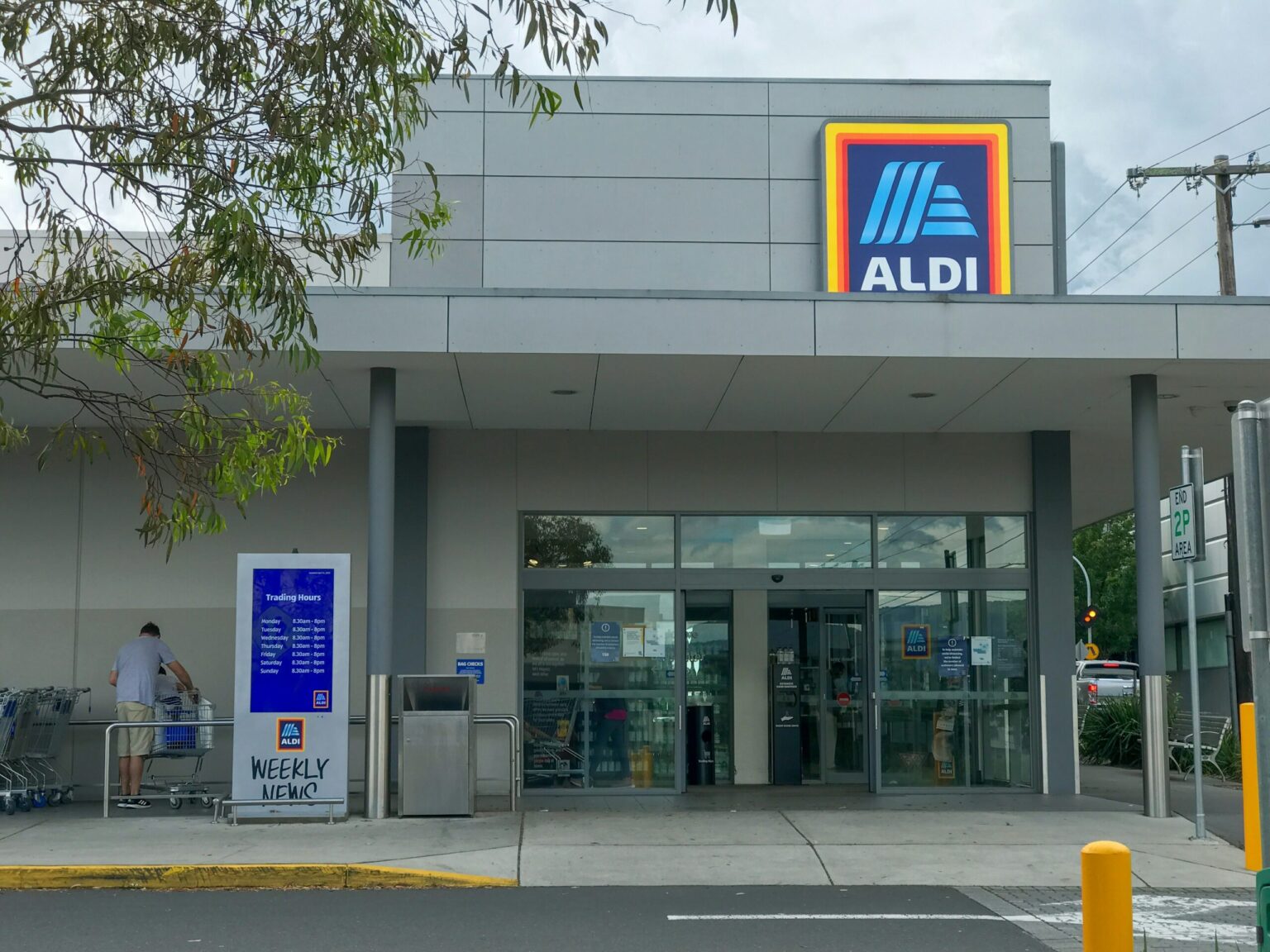Aldi has become one of the most successful supermarket chains in the UK, revolutionising the way people shop for groceries.
Known for its low prices, streamlined store layouts and high-quality own-brand products, Aldi has grown from what was once a small German discount retailer into a dominant force on the British high street.
Its tremendous success is a testament to its innovative business model, customer-focused approach and ability to adapt to changing consumer trends.
From Humble Beginnings to Becoming a Global Powerhouse
Aldi was founded in Germany in 1946 by brothers Karl and Theo Albrecht who took over their mother’s small grocery store and transformed it into a chain of discount supermarkets.
The name Aldi is a shortened version of “Albrecht Discount,” reflecting the company’s commitment to offering high-quality goods at the lowest possible prices – and, of course, the brothers’ family name.
By the 1960s, the brothers had expanded across Germany and eventually, they split the company into Aldi Nord and Aldi Süd, each brother responsible for different regions.
It was only in the ’90s that Aldi first entered the UK market, with its first store opening in Birmingham. At the time, British shoppers were unfamiliar with the model of a discount supermarket that focused on a limited selection of products, simple store designs and quick checkout processes.
But, it wasn’t long before consumers got used to it, with Aldi ultimately managing to win over UK consumers with its awesome prices and excellent quality.
The Aldi Business Model: Prioritising Efficiency and Value
One of the key reasons behind Aldi’s success is its highly efficient business model. Unlike traditional supermarkets, Aldi operates on a low-cost, high-efficiency approach – this allows it to keep prices down without having to compromise on quality.
Aldi stores are designed to be simple and functional, with minimal decoration and wide aisles that make it easy for customers to navigate. It’s all about efficacy and efficiency.
Often, products are displayed in their original shipping boxes, reducing the need for staff to restock shelves constantly. Not only does this cut down on operational costs, but it also ensures that Aldi can pass the savings on to its customers which is the ultimate goal.
Another important factor in Aldi’s success is its focus on own-brand products. Incredibly, around 90% of Aldi’s stock consists of private-label goods that are carefully selected to match or even exceed the quality of well-known brands.
By cutting out the middleman and working directly with suppliers, Aldi is able to offer premium products at significantly lower prices than its competitors which is what’s allowed it to be so successful over the years.
Not Just Succeeding, But Actually Changing the UK Supermarket Landscape
Aldi’s impact on the UK grocery sector has been nothing short of profound. It hasn’t just been successful, it’s completely challenged the dominance of traditional supermarkets such as Tesco, Sainsbury’s and Asda by offering consumers an alternative that combines affordability with high-quality products.
The rise of Aldi, along with its fellow German discount retailer Lidl, has forced the UK’s “Big Four” supermarkets to rethink their pricing strategies and introduce their own budget-friendly options to compete. It’s enhanced competition in the world of UK supermarkets which, at the end of the day, is always healthy.
One of the turning points in Aldi’s UK success story came during the 2008 financial crisis when cash-strapped consumers started looking for ways to cut down on their grocery bills.
A lot of shoppers who had never considered discount supermarkets before began to realise that Aldi’s products offered excellent quality at a fraction of the price they were used to paying. Since then, Aldi has continued to grow, expanding its range to include premium products, organic options and even luxury Christmas ranges.


